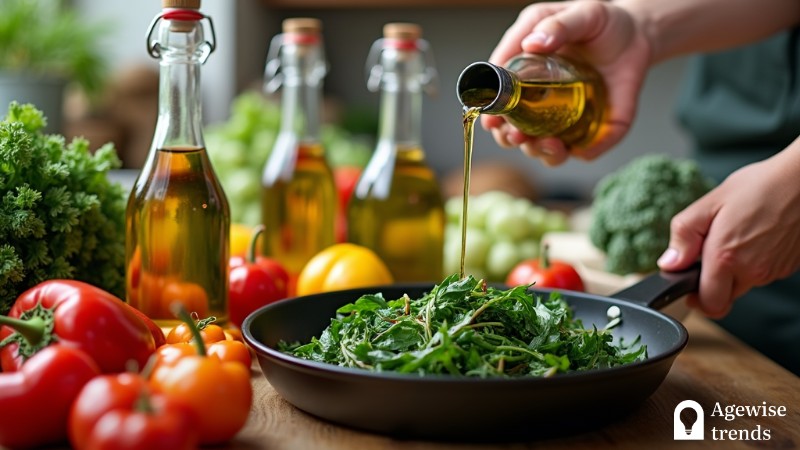Opening the refrigerator is an everyday habit, whether for grabbing a quick snack or preparing a meal. But what many people don’t realize is that some of the foods stored inside can pose serious health risks if not handled properly. While refrigeration slows bacterial growth, it doesn’t stop it completely, and certain foods are particularly prone to harboring dangerous pathogens.
Understanding these risks and taking the right precautions can help prevent foodborne illnesses and keep your household safe.
Key Takeaways
Refrigeration alone doesn’t stop the growth of bacteria in certain foods, which can pose serious health risks if they aren’t handled properly.
- Protein-rich foods such as raw meat and dairy can harbor harmful bacteria like Salmonella and Listeria.
- Cooked rice that sits at room temperature before being refrigerated can develop toxins from Bacillus cereus, leading to food poisoning.
- Deli meats are particularly susceptible to Listeria growth even in cold conditions and should be eaten soon after opening.
Protein perils unveiled
Protein-rich foods such as raw meat, poultry, eggs, and dairy products are among the most vulnerable to bacterial contamination. These foods provide an ideal environment for harmful microorganisms like Salmonella, Listeria, and E. coli to thrive.
One of the biggest culprits is raw chicken, which can carry Salmonella and Campylobacter, two bacteria responsible for severe food poisoning. The risk isn’t limited to consuming undercooked poultry; cross-contamination is a major concern as raw chicken juices can drip onto other foods in the fridge, spreading bacteria.
Dairy products, particularly soft cheeses and unpasteurized milk, also pose a significant risk. Listeria monocytogenes, a bacterium that can lead to life-threatening infections, can survive and even multiply in refrigerated conditions. Unlike other bacteria that become dormant at cold temperatures, Listeria can continue to grow, making contaminated dairy products particularly dangerous for pregnant women, older adults, and those with weakened immune systems.
Proper storage and handling practices, such as keeping raw meat sealed in containers and consuming dairy products before their expiration dates, can reduce the risks associated with these high-protein foods.
Rice leftovers, silent threats
Most people don’t associate cooked rice with foodborne illness, yet it can be one of the riskiest items in your refrigerator. This is due to Bacillus cereus, a type of bacteria that forms spores capable of surviving the cooking process.
If cooked rice is left at room temperature for too long before being stored, these spores can multiply and release toxins that cause food poisoning. Unlike bacteria that can be killed by reheating, these toxins remain active even after the rice is warmed up again.
The danger lies in improper storage. Many people leave rice out for extended periods before refrigerating it, allowing the bacteria to develop. The symptoms of Bacillus cereus poisoning, which include vomiting and diarrhea, can appear within hours of eating contaminated rice.
Storing cooked rice in shallow, airtight containers and refrigerating it promptly can help prevent bacterial growth. Additionally, leftovers should be thoroughly reheated to a safe temperature and never reheated more than once.
Deli deceptions exposed
Deli meats and other processed foods may seem safe due to their preservatives, but they can actually be a breeding ground for dangerous bacteria. Pre-sliced meats like ham, turkey, and salami are particularly vulnerable to Listeria monocytogenes, a bacterium that thrives in cold environments. While refrigeration can slow down most bacterial growth, Listeria continues to multiply at low temperatures, making deli meats a hidden risk.
Another concern with processed meats is repeated handling. Every time a package is opened, bacteria from hands and kitchen surfaces can transfer onto the food. Even vacuum-sealed deli meats aren’t immune; once opened, the risk of contamination increases, especially if they are not consumed within a few days.
To minimize risk, deli meats should be stored in airtight containers and eaten within a short time after opening. Those who are pregnant or immunocompromised should avoid consuming them unless they are heated to a safe temperature before eating.
Vegetables under siege
Fresh vegetables, particularly leafy greens and mushrooms, are often stored in the fridge to maintain their freshness. However, despite refrigeration, they can still harbor harmful bacteria such as E. coli and Listeria.
Contamination often occurs before the vegetables even reach your kitchen, as they can be exposed to bacteria during farming, harvesting, or handling. Washing produce before refrigeration does not always eliminate these risks, as bacteria can cling to leaves and stems.
Mushrooms, in particular, can become problematic when stored improperly. If kept in plastic containers or bags without proper air circulation, moisture can accumulate, creating the perfect conditions for mold and bacterial growth. Leafy greens, such as spinach and lettuce, are also prone to contamination, which is why outbreaks of foodborne illnesses linked to fresh produce are relatively common.
Proper handling, including storing vegetables in breathable containers and washing them thoroughly before consumption, can help reduce the risk of illness. It’s also important to discard any produce that appears slimy, discolored, or has an off-putting odor, as these are signs of bacterial growth.
Ensuring a safe and healthy refrigerator
Your refrigerator is meant to keep food fresh, but it can also become a hidden source of health risks if not properly managed. High-protein foods, cooked rice, deli meats, and fresh vegetables are among the biggest concerns, yet simple storage and handling habits can significantly reduce the dangers.
Keeping the fridge at the correct temperature, organizing food in sealed containers, and staying vigilant about food freshness are all crucial steps in ensuring safety. While refrigeration plays an essential role in preserving food, it’s not a guarantee against contamination. By taking a proactive approach to food storage and hygiene, you can reduce the risk of illness and ensure that every meal you prepare is as safe as it is delicious.















